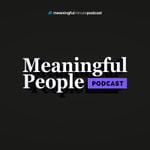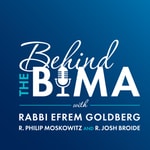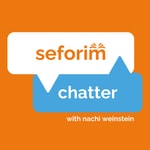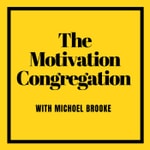Jewish History Soundbites – Details, episodes & analysis
Podcast details
Technical and general information from the podcast's RSS feed.
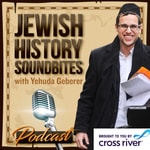
Jewish History Soundbites
Yehuda Geberer
Frequency: 1 episode/5d. Total Eps: 457

Recent rankings
Latest chart positions across Apple Podcasts and Spotify rankings.
Apple Podcasts
🇬🇧 Great Britain - judaism
26/07/2025#89🇺🇸 USA - judaism
26/07/2025#31🇫🇷 France - judaism
26/07/2025#51🇩🇪 Germany - judaism
25/07/2025#88🇺🇸 USA - judaism
25/07/2025#30🇫🇷 France - judaism
25/07/2025#42🇩🇪 Germany - judaism
24/07/2025#65🇺🇸 USA - judaism
24/07/2025#35🇫🇷 France - judaism
24/07/2025#35🇩🇪 Germany - judaism
23/07/2025#39
Spotify
No recent rankings available
Shared links between episodes and podcasts
Links found in episode descriptions and other podcasts that share them.
See all- https://jsoundbites.podbean.com/
907 shares
- https://www.crossriver.com/
102 shares
- https://teachcoalition.org/vote/
8 shares
RSS feed quality and score
Technical evaluation of the podcast's RSS feed quality and structure.
See allScore global : 52%
Publication history
Monthly episode publishing history over the past years.
The 1837 Tzfas Earthquake
Episode 430
dimanche 25 août 2024 • Duration 37:59
On January 1, 1837, a devastating earthquake hit the upper Galilee and southern Lebanon, destroying towns, villages, property and roads, disrupting commerce and claiming the lives of thousands of victims. The ancient and mystical city of Tzfas was essentially destroyed at the epicenter of the earthquake’s damage, with most of its citizens killed, and the remainder being rendered homeless and penniless in the wake of this natural disaster. The traumatic event left a decisive impact on the trajectory of the Old Yishuv, with the wider social, economic and religious ramifications of this displacement being felt for decades. The rise of Yerushalayim with the downfall of Tzfas, messianic tension and subsequent disappointment, the funding apparatus of the Old Yishuv, and many other elements of Jewish life, would be heavily influenced by this one natural disaster which changed the Jewish history of the Holy Land.
Cross River, a leading financial institution committed to supporting its communities, is proud to sponsor Jewish History Soundbites. As a trusted partner for individuals and businesses, Cross River understands the importance of preserving and celebrating our heritage. By sponsoring this podcast, they demonstrate their unwavering dedication to enriching the lives of the communities in which they serve. Visit Cross River at https://www.crossriver.com/
Subscribe to Jewish History Soundbites Podcast on: PodBean: https://jsoundbites.podbean.com/ or your favorite podcast platform
Follow us on LinkedIn, Twitter or Instagram at @Jsoundbites
For sponsorship opportunities about your favorite topics of Jewish history or feedback contact Yehuda at: [email protected]
The Death Marches
Episode 429
jeudi 8 août 2024 • Duration 47:55
Towards the end of 1944, as it became clear to the senior officers of the Nazi SS that the war was lost, they decided to evacuate the many concentration camps which held several hundred thousand inmates, and which stood in the path of the rapidly advancing Red Army. Himmler and his SS didn’t want to leave living witnesses to be liberated by the Allied armies, and they also wished to utilize the slave labor of concentration camp inmates in the remaining war industry in Germany for the duration of the war. During the winter of 1944-45, a mass evacuation of nearly a half a million prisoners commenced from large concentration camps such as Auschwitz-Birkenau, Stutthof and Gross-Rosen, along with many smaller camps, began under horrid conditions. Starved, diseased, freezing weather, lack of preparation for the journey, and constant shootings of those who lagged behind, made these death marches a murderous journey, in which tens of thousands were killed or died along the way. As trains were often unavailable, the bulk of these death marches took place on foot. This last deadly phase of the Holocaust was a tragic ending for many victims, and a traumatic memory for the few survivors.
Cross River, a leading financial institution committed to supporting its communities, is proud to sponsor Jewish History Soundbites. As a trusted partner for individuals and businesses, Cross River understands the importance of preserving and celebrating our heritage. By sponsoring this podcast, they demonstrate their unwavering dedication to enriching the lives of the communities in which they serve. Visit Cross River at https://www.crossriver.com/
Subscribe to Jewish History Soundbites Podcast on: PodBean: https://jsoundbites.podbean.com/ or your favorite podcast platform
Follow us on LinkedIn, Twitter or Instagram at @Jsoundbites
For sponsorship opportunities about your favorite topics of Jewish history or feedback contact Yehuda at: [email protected]
Beyond the Pale: Russian Jewry outside the Pale of Settlement
Episode 420
dimanche 14 avril 2024 • Duration 50:20
The Russian Czarist government restricted Russian Jewry to the western provinces of the empire through a series of legislative acts, which came to be known as the Pale of Settlement. Starting in the 1850’s, provisions were enacted which enabled certain types of Jews to reside outside the Pale. Wealthy merchants, those with academic degrees, certain kinds of military veterans and craftsman, were gradually permitted to reside anywhere they desired across the Russian Empire. This process is now referred to as selective integration, and it proceeded quite slowly, and was often accompanied by other restrictions. This integration process didn’t lead to the desired emancipation, and was further limited by a reactionary policy pursued by the Czar following the pogroms of 1881-82. The Jewish community of St Petersburg emerged as the self-appointed leadership of Russian Jewry, and interceded on behalf of the Jews within the Pale with limited success.
Cross River, a leading financial institution committed to supporting its communities, is proud to sponsor Jewish History Soundbites. As a trusted partner for individuals and businesses, Cross River understands the importance of preserving and celebrating our heritage. By sponsoring this podcast, they demonstrate their unwavering dedication to enriching the lives of the communities in which they serve. Visit Cross River at https://www.crossriver.com/
Subscribe to Jewish History Soundbites Podcast on: PodBean: https://jsoundbites.podbean.com/ or your favorite podcast platform
Follow us on LinkedIn, Twitter or Instagram at @Jsoundbites
For sponsorship opportunities about your favorite topics of Jewish history or feedback contact Yehuda at: [email protected]
From World War to Revolution: Iranian Jewry Part II
Episode 329
samedi 12 février 2022 • Duration 32:02
Iranian Jewry in the 20th century saw much upheaval. The rise of the Pahlavi dynasty brought much hope to the Persian Jewish community. Iran served as a center of some important events of World War II with the Anglo-Soviet invasion of the country, as host of the Teheran Conference, the exit of the Polish Anders Army through Iran and many Jewish refugees arriving there including the famous ‘Yaldei Teheran’.
Another period of relative stability was interrupted towards the end of the 1970’s with the Revolution and the subsequent Iran-Iraq war. Much emigration occurred around this time. Rabbi Herman Neuberger and other activists engaged in the rescue of many Iranian Jews, and this sparked a renaissance of Iranian Jewish life in the United States. Many immigrated to Israel as well. Rabbi Neuberger arranged their attendance of Ner Israel - tuition free - and many emerged as leaders of the Iranian Jewish community.
For sponsorship opportunities about your favorite topics of Jewish history contact Yehuda at: [email protected]
Subscribe To Our Podcast on:
PodBean: https://jsoundbites.podbean.com/
Follow us on Twitter or Instagram at @Jsoundbites
You can email Yehuda at [email protected]
Princes of Persia: Iranian Jewry Part I
Episode 328
dimanche 6 février 2022 • Duration 32:45
The ancient Jewish community of Persia/Iran is one of the oldest Jewish communities in the world. The site of the Purim story and many Biblical and Talmudic era luminaries, it continued to flourish through times of stability and persecution.
One of the great rabbinical leaders in the city of Hamedan, Iran in modern times was Chacham Mola David Sasson Rabban (1879-1974). As rabbi of the community he oversaw its growth and later decline in mid 20th century to widespread emigration, while corresponding with rabbis across Iran and in neighboring Iraq. He also ran the local Otzar Hatorah school, which was part of network of traditional Jewish education which facilitated the renaissance of Jewish life in Iran and later in Iranian diaspora Jewish communities.
This podcast is sponsored in honor of the release of the first sefer of its kind! The writings of the Av Bet Din of the city of Hamadan, Iran, Rabbi David Sasson Rabban, including a whole section on the minhagim of the Jews of Iran. Published by Machon Magen Avot publishing house, and is available on their website moroccanhalacha.com, along with all other sefarim by Machon Magen Avot. In Israel it can be obtained in the Sifria Hasefaradit Rechov Bucharim 4. https://magen-avot.myshopify.com/products/the-writings-of-chacham-rabbi-david-sasson-rabban-of-hamedan-iran
For sponsorship opportunities about your favorite topics of Jewish history contact Yehuda at: [email protected]
Subscribe To Our Podcast on:
PodBean: https://jsoundbites.podbean.com/
Follow us on Twitter or Instagram at @Jsoundbites
You can email Yehuda at [email protected]
Chabad & Zionism Part II
Episode 327
dimanche 30 janvier 2022 • Duration 37:20
With the passing of the fifth rebbe of Chabad the Rashab in 1920, his son Rav Yosef Yitzchak Schneerson (1880-1950), the Rayatz, or the Freidiker (previous) Rebbe, took over the Chabad-Lubavitch movement at a time of crisis. Through the decades of his leadership he expressed a commitment to the ideals of his father in regards to Zionism, while dealing with the practical upheavals of Jewish life including the Holocaust and the founding of the State of Israel.
This was continued by his son in law and successor Rav Menachem Mendel Schneerson. While in theory, the opposition to ideas such as ‘aschalta digeula’ remained, practical considerations of caring for the needs of the Jewish People and furthering Jewish observance took precedence.
Of special note was the relationship enjoyed between both Rebbe’s and the third president of the State of Israel, Zalman Shazar.
For sponsorship opportunities about your favorite topics of Jewish history contact Yehuda at: [email protected]
Subscribe To Our Podcast on:
PodBean: https://jsoundbites.podbean.com/
Follow us on Twitter or Instagram at @Jsoundbites
You can email Yehuda at [email protected]
Wise Man of Hungary: Rav Yehuda Aszod
Episode 326
samedi 22 janvier 2022 • Duration 31:27
Rav Yehuda Aszod (1796-1866) was one of the architects of the emerging Hungarian Orthodoxy of the 19th century. A student of the Maharam Banet, he went to serve in the rabbinate and as a rosh yeshiva in several towns, the most prominent of which was in Dunaszerdahely in the Austrian Empire.
Ideologically positioned between neo Orthodoxy as represented by Rav Ezriel Hildesheimer and Hungarian Ultra-Orthodoxy as represented by Rav Hillel Lichtenstein, Rav Yehuda Aszod emerged as a leader of mainstream orthodoxy along with his colleague the Ksav Sofer. For decades he confronted modernist trends, any assault on tradition, and engaged in polemics with assimilationists and reformists alike. In 1864 he headed a delegation which met with Emperor Franz Jozef I in an unsuccessful attempt to block the opening of a reformist rabbinical seminary.
For sponsorship opportunities about your favorite topics of Jewish history contact Yehuda at: [email protected]
Subscribe To Our Podcast on:
PodBean: https://jsoundbites.podbean.com/
Follow us on Twitter or Instagram at @Jsoundbites
You can email Yehuda at [email protected]
A Dazzling Light: The Life & Impact of Rabbi Aryeh Kaplan
Episode 325
samedi 15 janvier 2022 • Duration 25:20
Rabbi Aryeh Kaplan (1934-1983) was a dazzling light on the Jewish history scene of the 20th century. With family origins in Thessaloniki, Greece, he was born in the Bronx, and eventually studied at Yeshiva Torah Vodaath and Mir Yeshiva in Jerusalem. Returning to the US he became a physicist and then a pulpit rabbi, before entering the world of Jewish outreach.
In his later years he maintained a prodigious literary output, authoring a large amount of works across the gamut of Jewish thought, mysticism, chassidic thought and practical Jewish observance. Much of this was commissioned by NCSY, which is where he did much of his kiruv activities. His tragic passing at the young age of 48 cut short his life work and accomplishments, but his impact continues until today through his many published works.
This episode has been sponsored by NCSY in honor of the republication of Rabbi Aryeh Kaplan’s books. Connect more to Mitzvos and Yiddishkeit with Rabbi Aryeh Kaplan Zt”l’s republished and enhanced books. The library of 10 books covers the deeper meaning of some of the most important mitzvos. A project of NCSY in conjunction with Artscroll.
For More Information and to Buy the Books:
For sponsorship opportunities about your favorite topics of Jewish history contact Yehuda at: [email protected]
Subscribe To Our Podcast on:
PodBean: https://jsoundbites.podbean.com/
Follow us on Twitter or Instagram at @Jsoundbites
You can email Yehuda at [email protected]
The Czars & The Jews Part I
Episode 324
dimanche 9 janvier 2022 • Duration 35:54
Following the partitions of Poland in the last quarter of the 18th century, the largest Jewish community in the world found themselves under the rule of the Romanov dynasty in the Russian Empire. Each Czar formulated a distinct policy in regards to the Jewish population, and many of these policies, along with the Jewish community’s reaction, often has ramifications until this very day.
Catherine the Great was czarina during the years of the partition itself, and she commenced her Jewish policy influenced by the ideas of enlightened absolutism. Jews were granted partial emancipation but the beginnings of their confinement to what would become known as the Pale of Settlement began as well. At the turn of the 18th-19th centuries, Alexander I assumed power, and he initially was viewed as a somewhat enlightened ruler, primarily due to the opportunities afforded through his ‘Jew constitution’ promulgated in 1804.
He was succeeded by Czar Nicholas I, who went down in history as a sworn enemy of the Jews and an evil ruler. It was under his watch that the infamous cantonist decrees took place. He also attempted to meddle with internal Jewish affairs by reforming the educational institutions and by the annulment of the kahal communal structure.
For sponsorship opportunities about your favorite topics of Jewish history contact Yehuda at: [email protected]
Subscribe To Our Podcast on:
PodBean: https://jsoundbites.podbean.com/
Follow us on Twitter or Instagram at @Jsoundbites
You can email Yehuda at [email protected]
The Roar of the Lion: The Life of Rav Leib Malin Part I
Episode 323
dimanche 2 janvier 2022 • Duration 33:01
Prewar student of Rav Yerucham Levovitz and the Brisker Rov, leader during the Mir Yeshiva’s wartime escape to Shanghai, and postwar builder of Bais Hatalmud in Brooklyn, Rav Leib Malin (1906-1962) was the ‘Lion of the Mir’.
In part 1 of examining his life and accomplishments, we examine his family background, leadership role in the escape to Shanghai, and his replanting Torah through his Bais Hatalmud yeshiva in the postwar United States. The unique circumstances of this rebuilding attempt, made his all encompassing vision of what a yeshiva is a historic landmark in the role that the yeshiva institution was to play in revitalizing traditional society. No longer to be limited to an educational role, a yeshiva was to be a lifelong communal affiliation, a revolutionary role which has arguably bore fruit through the contemporary yeshiva community worldwide.
This episode has been sponsored by 20 Minute Daf. A daf yomi shiur led by Reb Shaul Greenwald, 20 minute daf is where you feel the geshmak of Daf Yomi. In just a little over 20 minutes, you'll get a clear and thorough explanation of the sugya. Listen to 20 Minute Daf on all podcast platforms, WhatsApp, and at 20minutedaf.com
For sponsorship opportunities about your favorite topics of Jewish history contact Yehuda at: [email protected]
Subscribe To Our Podcast on:
PodBean: https://jsoundbites.podbean.com/
Follow us on Twitter or Instagram at @Jsoundbites
You can email Yehuda at [email protected]
